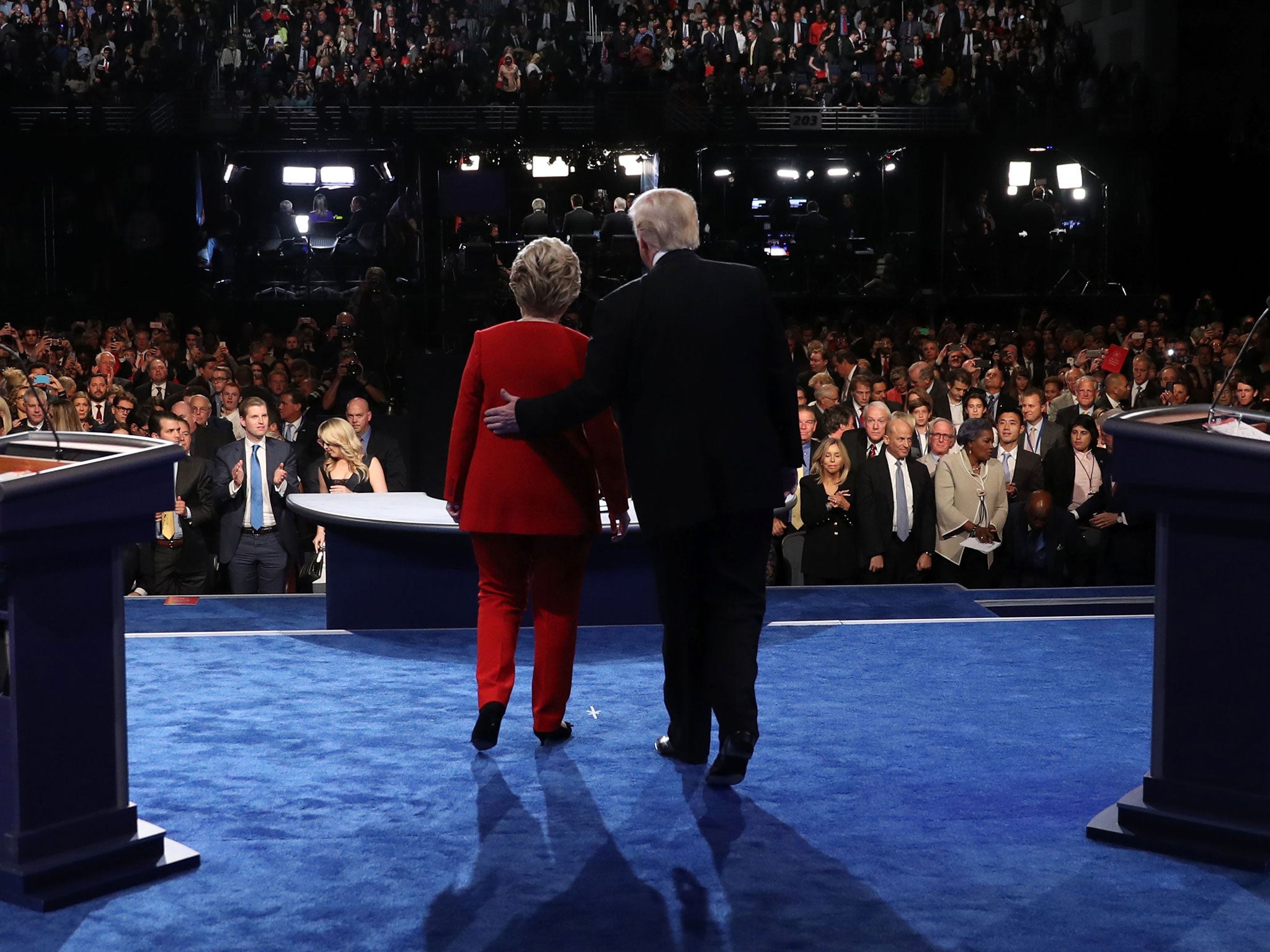Donald Trump v Hillary Clinton: The battleground states that will decide who wins the US election
Even tiny New Hampshire could determine the winner – if it’s razor close

When an American presidential election is close, there are only a handful of states that matter to the campaigns. They are the so-called battleground states, where the outcomes on Election Day are uncertain. This year both sides are lavishing their advertising dollars on about 11 states in all and they are where the candidates are spending the majority of their time.
Those that matter the most are not just the ones where polling shows the candidates neck and neck. It is also about the math of the Electoral College. Whoever reaches the 270-vote mark in the College wins the presidency. So it’s the swing states with the most votes in the College – it depends on population – that will always be the most critical to each of the campaigns.
Florida (29 EC votes)
Both campaigns desperately need Florida. With its burgeoning Hispanic population, you might think it would be slipping from Mr Trump’s grasp because of his incendiary rhetoric on immigration. Yet his message on trade and change is resonating well even among some Hispanics in central Florida and the outcome – as so often is the case – is entirely in the balance.
Ohio (18 EC votes)
History has a warning here for Mr Trump. No Republican has won the presidency without winning Ohio on Election Night. This is the battleground state in the heartland of America. It’s also the rustbelt and if polls have given an edge to the Republican it’s because here again his message on bringing jobs home and toughening the US stance on trade is working.
North Carolina (15 EC votes)
This may be the most tumultuous swing state of them all. The bases of both parties are energised. Democrats are chafing under Governor Pat McCrory’s attempts to erode LGTB rights – the transgender bathroom fight – and Republicans are reacting to the shootings and unrest in Charlotte. Once clearly in the Republican column, it went to Mr Obama in 2008, but Mr Romney in 2012.
Pennsylvania (20 EC votes)
This is a state that has Democrat all over it. Philadelphia is the city of Brotherly Love with a significant black population. Scranton is the hometown of Vice President Joe Biden. Yet many of those voters the Democrats would like to take for granted are precisely those white and male voters with low education who have swarmed towards Mr Trump. His focus: the Philadelphia suburbs.
Virginia (13 EC votes)
Mr Trump has been a regular visitor, notably trying to rally support from military families and veterans. But Ms Clinton has the edge. She chose Tim Kaine, US Senator from Virginia as her running mate to shore up support in the state and the strategy is probably working. Mr Trump is hoping also for a rural vote boost, but Ms Clinton is strong in the suburbs near Washington DC.
Michigan (16 EC votes)
Michigan, with Detroit as its largest metropolis, has been reliably Democrat in presidential terms for decades, but this time could be different if Mr Trump can use his messaging on unemployment – including the loss of car plants to Mexico – and urban decay to his advantage. He has repeatedly visited the state since winning the nomination in hopes of an upset victory.
Wisconsin (10 EC votes)
The home state of Paul Ryan, the Republican speaker of the House, and another rustbelt state with a sad history of diminished manufacturing, Wisconsin is also in play. If Ms Clinton has not made Wisconsin a priority, she has been sending others there, including her daughter Chelsea and Senator Bernie Sanders, in an effort to energise younger voters in big university cities like Madison.
New Hampshire (4 EC votes)
Who cares about little New Hampshire? Both candidates do, because they know that if this turns out to be a nail-biter, its four votes in the Electoral College could actually be all that’s needed to push one of them past the 270-vote mark and to victory. So, as in the primary season, the tiny Granite State in New England is once again buzzing with election activity.
Iowa (6 EC votes)
Iowa, like New Hampshire, surely gets enough attention during the primary season – its caucus voting sets off the race for each party’s nomination – but this year it’s getting plenty of General Election attention too. While Ms Clinton is focusing her efforts in the more liberal areas of Des Moines and Ames, Mr Trump has the edge in the state with big support from male, white farmers.
Colorado (9 EC votes)
Polling in Colorado has been highly volatile. For a brief moment in September, it looked as if Mr Trump was leading Ms Clinton in the Centennial State, then the pollsters returned it to the lean-Democrat column. If Mr Trump loses in Colorado on Election Day it will be a good sign that he is losing the country. And partly it will be because of a big turnout for Ms Clinton among Hispanics.
Nevada (6 EC votes)
Another bellwether state – where Nevada goes so goes the nation, they say – where predicting a winner remains tricky. Part of the difficulty is the relative strength of Libertarian Gary Johnson who is close to double digits in the state. Nevada was especially damaged by the housing crisis after 2008 and Mr Trump’s economic promises hold some allure.
Subscribe to Independent Premium to bookmark this article
Want to bookmark your favourite articles and stories to read or reference later? Start your Independent Premium subscription today.

Join our commenting forum
Join thought-provoking conversations, follow other Independent readers and see their replies